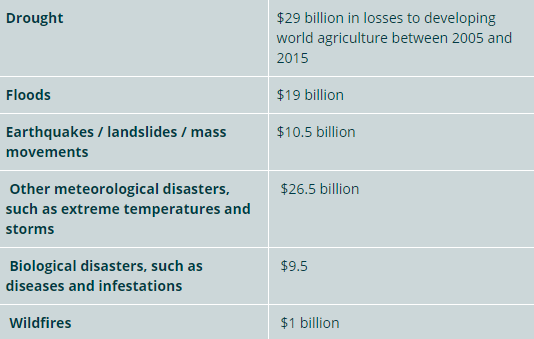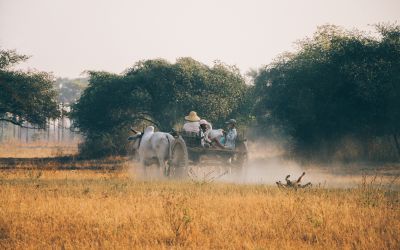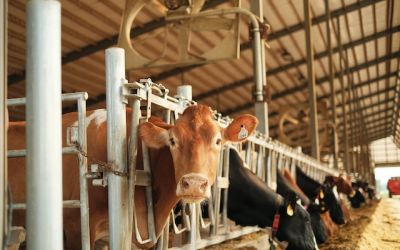Extreme weather is adversely impacting poor farmers, says UN food agency
A new report from the UN’s food agency has highlighted how an increased prevalence of natural disasters is causing billions of dollars in agricultural losses around the developing world.

A new report from the UN’s food agency has highlighted how an increased prevalence of natural disasters is causing billions of dollars in agricultural losses around the developing world.
The study, released by the Food and Agriculture Organization (FAO), details how between 2005 and 2015 natural disasters cost $96 billion of damages to the agricultural sectors around the world.
Asia is bearing the heaviest brunt of this impact with $48 billion in losses, followed by Africa with $26 billion and Latin America and the Caribbean on $22 billion.
Drought was the main cause of damages, followed by floods and earthquakes. Extreme temperatures and storms, now made more likely due to climate change, also combined to be a main contributor.
"The agriculture sectors — which includes crop and livestock production as well as forestry, fisheries and aquaculture — face many risks, such as climate and market volatility, pests and diseases, extreme weather events, and an ever-increasing number of protracted crises and conflicts," said FAO Director-General José Graziano da Silva.
"This has become the ‘new normal,' and the impact of climate change will further exacerbate these threats and challenges," he said.
As the FAO points out, an estimated 2.5 billion people on the planet depend on agriculture.
The FAO is developing methods to tackle the problem so that farmers are more equipped to handle extreme weather events.
These include stronger financing, new climate-smart agricultural policies, and closer monitoring of how disasters affect farmers and food producers.
"Disaster risk reduction and management must therefore become an integral part of modern agriculture. Building a more holistic and ambitious disaster-resilience framework for agriculture is crucial to ensuring sustainable development — which is a cornerstone for peace and the basis for adaptation to climate change," argued the FAO Director-General.
Source: FAO





_400_250_80_s_c1.jpg)

